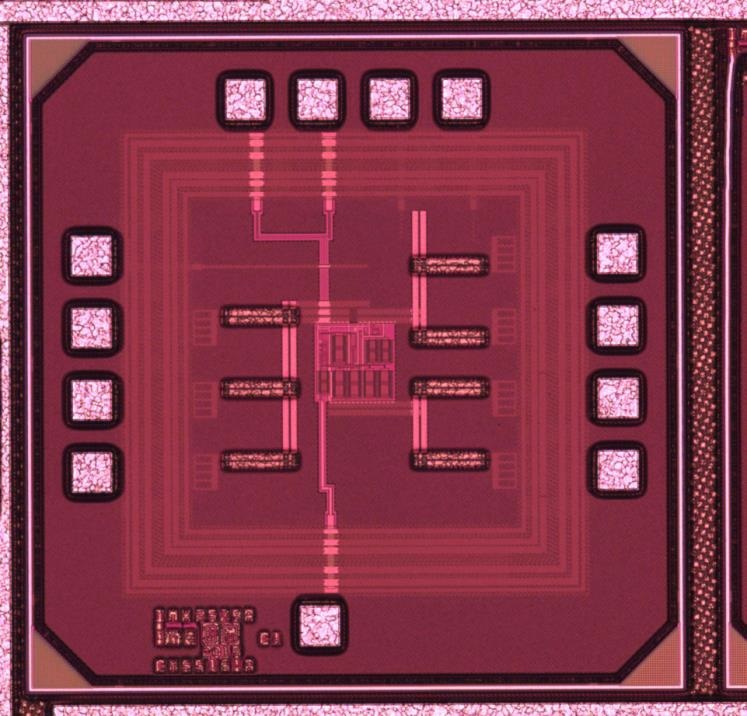Oct 9 2019
A*STAR researchers have developed an AI chip design platform that has the potential to transform the multibillion-dollar global integrated circuit (IC) design industry by accelerating design optimisation, reducing IC design turnaround time, and improving productivity significantly by twofold.
 Fig 1. A three-stage operational amplifier (OPA) designed by the AI platform.
Fig 1. A three-stage operational amplifier (OPA) designed by the AI platform.
The traditional way of designing integrated circuits is a complicated process that requires experienced engineers with domain knowledge. It is a manual, laborious process where designers rely on trial-and-error to achieve their design goals, slowing down productivity in the process.
As technology advances, the complexity of chip design is ever increasing.
To combat these challenges, A*STAR’s Smart IC Design with Learning Enablement (SMILE) is an AI platform that uses machine learning to automate these complex processes. The SMILE platform is able to augment the circuit design process to improve productivity and quality, perform design space exploration, and enable rapid IP development. It can enable accelerated and automated design closure even in the absence of an experienced designer.
To demonstrate its effectiveness, the platform has been deployed internally within A*STAR’s laboratories, and researchers were able to show two times silicon-proven performance boost compared to the best human optimised design – all within the span of a day. This is a breakthrough in terms of productivity in IC design.
The developed capability is in the intersection of deep learning and circuit design. It combines integrated circuit design and electronic design and automation (EDA) expertise from the Institute of Microelectronics (IME), and AI algorithms from the Institute for Infocomm Research (I²R).
By employing state-of-the-art AI semi-supervised learning, and an algorithm unique to A*STAR, the system is able to improve its learning accuracy with a significantly less amount of training data. In conjunction with EDA to capture prior knowledge of the circuits and suggest an optimised solution, SMILE is a smart system which balances the trade-offs in speed, area, power, and overall performance. An image of the integrated circuit designed by SMILE can be found in Annex A.
This development will benefit semiconductor design industries, ranging from IP development and fabless IC design companies, as it will greatly improve the productivity of the research and development of integrated circuits, and reduce the time to push the product to the market.
“With this novel technology, we can advance science in the wider ecosystem and give the semiconductor industry a boost in productivity. Companies can leverage A*STAR’s technologies to scale up and remain competitive.” said Prof Dim-Lee Kwong, Executive Director of IME.